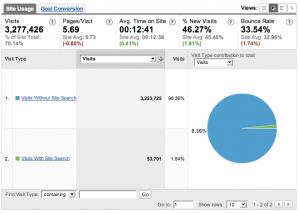In this day and age, the big decision of picking between the two ends of the workplace environment spectrum is not that uncommon for the average employee to experience. You hear through the grapevine about the far-fetched but somehow simultaneously necessary and unnecessary perks of a startup environment and compare it with the guaranteed internal growth and financial security of a corporate career.
But which do you choose?
While there are many grays on the workplace spectrum, each are tailored to a specific type of person and work ethic…so have no fear! While we’re not saying that every startup and corporate company fits exactly these traits, we’re breaking it down to give you a better idea of what each of these environments can offer and if it may be the right fit for you and your working style as you hunt for the perfect job. Here at Contactually, we embody much of the ‘typical’ startup traits but understand it’s not always the best fit for folks on the job hunt.
Workplaces & You: Startup environment vs. Corporate
Choose: Startup
Appreciate the little things in life.
Ah, the startup. Usually characterized by exposed-brick walls with a plethora of “fun” yet creatively stimulating interior decorating, the startup sounds like a playground for work. Completely personalized hours, napping rooms, your colleagues bringing their dogs to work- the startup is the ‘millennial’ of the two environments. With a laid-back atmosphere, it aims to mix work and pleasure by creating an environment where employees can literally feel very comfortable.

Freedom.
Unlike a corporation, the startup maintains very little definitive hierarchy or its corresponding laws. It immediately puts trust into your method of madness; you tend to only be given a task, and you have the freedom to choose your means to get there and how long it takes (to some extent).
Feel free to listen to music while you work, work for two hours straight then take an hour break. Work from wherever you want – home or office or on a beach vacation in Hawaii. Fluidly structured, the job tailors itself around you rather than the other way around. You are fully independent, which can be a good thing; however, if you need help, have an idea, or have an issue, you have to be vocal about it. Make sure you make a point of introducing yourself to the whole office!
Digital.
Since the essence and development of the “startup” workplace has only emerged relatively recently, the crowd who tends to populate this work environment is not only on the younger side, but is also extremely tech-savvy. Because the workplace structure is more flexible, and you have the ability to work remotely, online platforms like Google sharing and Slack usually act as home base for the company.
Now, you don’t need to be a computer wizard to function in a startup, but a basic know-how of other platforms besides good, old Microsoft Office will prove itself useful.
More responsibility.
If you thrive while multitasking, the startup is right for you. Because startups are usually homegrown small and scrappy businesses, you have the ability to explore and take on a wide range of tasks. However, this means you may have more responsibility for a number of contrasting activities. If you’re not sure what you want to do in your career, the startup is the best place to explore options and see what you like.
Fringe benefits.
Startups often provide what can feel like luxurious benefits to your work life. Not simply monetary benefits like your paycheck, but fringe benefits include catered food and a constantly stocked snack cabinet, health insurance, paid sick days, etc. meaning they maintain a different beneficial balance than a corporation.

For instance, a Marketing Strategist in a startup will most likely be paid monetarily less than a corporate Marketing Strategist (or an equivalent position); in fact, the average startup salary tends to be 30% less than the norm. However, the person in the startup will probably receive more additional benefits (like fringe benefits) than the person in the corporation, evening out the score.
Additionally, startups are usually homegrown small businesses, so expect to have a more intimate relationship with your coworkers than you would in a larger corporation.
Choose: Corporate
The power and prestige of an ecosystem.
Often criticized for it rigidness, the corporation is recognized by its skyscrapers, unforgettable brand names, and the classy, sleek look of business professional. Find yourself in highly populated urban areas, like New York City or Washington, DC. A tough environment to survive in, the corporate life doesn’t wait for anyone.
Structured.
Compared to the startup, the corporation has more of a structured regime. If you like having a routine, having specific deadlined tasks, maintaining the traditional “professional” atmosphere and attitude throughout the office, then this workplace is right for you. Your tasks will be streamlined with little room for creativity.
However, if you know what you want to do in your career and what you excel at, then the specificity and focus of each position at a corporation will be an incredibly helpful way to hone in on those skills and move along on a planned career path.
Stick to what you know.
Though there is a lot of room for innovation, the corporation tends to stick to what they know works, with little tangential room for new, potentially complicated methods. Corporate work environments are lastingly established and proven to work, and it’s not uncommon for someone to have worked there for decades (#startedfromthebottom #nowweheeya), so don’t be surprised if it’s filled with a more mature crowd.
Be a part of something bigger.
Because corporate operations tend to be exponentially larger than startups, you will probably not know everyone you work with personally, but being apart of something larger allows you to contribute to the long-term, sustained growth of a company that may or may not be around for decades. Your individual success may not be uniquely recognized in the moment, but your contribution will be appreciated in a ripple effect in the context of the whole company.
Startup or Corporate?
Hey, one workplace is not better than the other, just more suitable for certain personality traits, work ethics, and ambitions. If you don’t know where you fit, feel free to test out both environments.
Still not sure which workplace is best for you? Take this quiz for a little more direction.
Business & Finance Articles on Business 2 Community(90)







